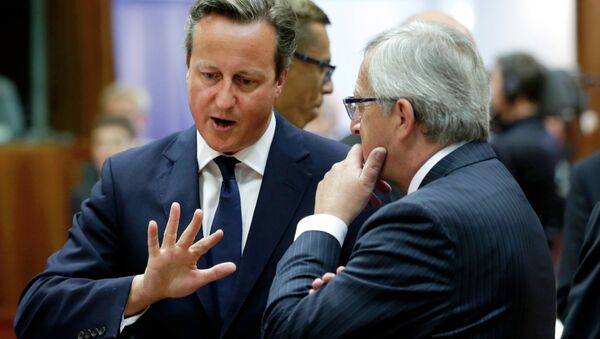This was in response to the European Commission’s president, Jean-Claude Juncker, who proposed such an organization on Sunday.
“A common army among the Europeans would convey to Russia that we are serious about defending the values of the European Union,” Jean-Claude Juncker told German newspaper Welt am Sonntag on Sunday.
Juncker, the former prime minister of Luxembourg, has long supported the idea of a joint European army. He argues that such a military would help establish a unified foreign policy for the region, and help strengthen the notion of Pan-European nationalism.
“Such an army would help us design a common foreign and security policy,” he said, adding that, “Europe’s image has suffered dramatically and also in terms of foreign policy, we don’t seem to be taken seriously.”
Even aside from Juncker’s personal troubles, the British government has always been wary of the EU, and the Greek economic crisis did nothing to help that caution.
“A European army would be a tragedy for the UK,” Mike Hookam, defense spokesman for the UK Independence Party, told the Guardian. “We have all seen the utter mess the EU has made of the Eurozone economy, so how can we even think of trusting them with this island’s defense?”
Principally, opponents of the plan point to the fact that European interests are already protected by NATO, and that the creation of a European military would only interfere with existing defenses. In addition, a European army would draw forces from each of the member states, and that process could draw British troops away from territories which broader Europe would have no interest in defending.
“If our nations faced a serious security threat, who would we want to rely on – NATO or the EU?” Conservative politician Geoffrey Van Orden told the Guardian. “The question answers itself,” he said.
Hookem points out that soldiers could be pulled from Gibraltar or the Falkland Islands. Hookem also suggested that a Pan-European military could drag British troops into the conflict in eastern Ukraine.
While the UK seems steadfastly against the proposal, Germany has had a decidedly different reaction. Defense Minister Ursula von der Leyen released a statement saying “our future as Europeans will one day be a European army.” Whether that determination remains enough to pursue the project without British backing remains to be seen.
“The EU’s defense ambitions are detrimental to our national interest, to NATO, and to the close alliances that Britain has with many countries outside the EU,” Van Orden said. “Not least the United States, Gulf allies, and many Commonwealth countries.”
Meaning if Juncker wants his army, he may need some of that laundered, Luxembourger tax money to fund the whole thing himself.





